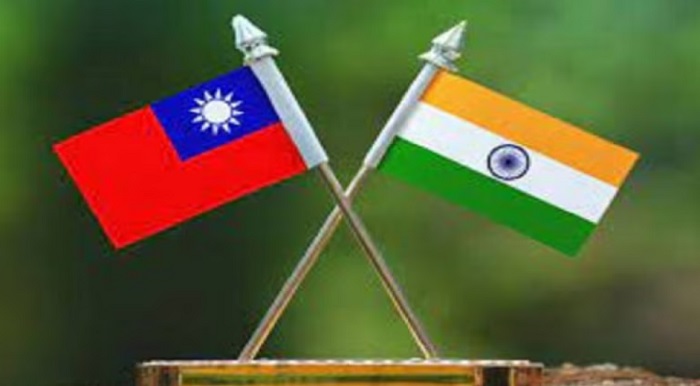
The opening of the Mumbai office comes in the wake of leading Taiwanese companies’ desire to relocate their manufacturing to India from China.
The decision to allow Taiwan to open a new office in Mumbai this week — its third in India after Delhi and Chennai — signifies not only the possibility of closer economic ties between the two sides, but also an evolution of the Indian position on the Taiwan issue.
The opening of the Mumbai office comes in the wake of leading Taiwanese companies’ desire to relocate their manufacturing to India from China.
Taiwan’s Deputy Minister for National Development, Kao Shien-Quey, has said that there is a huge scope for collaboration between New Delhi and Taipei in areas of emerging and critical technologies, including semiconductors and electronics.
Last month, addressing the joint session of the US parliament during his state visit to the US, Prime Minister Narendra Modi had warned that dark clouds of coercion and confrontation were casting their shadow over the Indo-Pacific, a region whose stability has become a key concern of the Indo-American partnership.
“We share a vision of a free, open, and inclusive Indo-Pacific, connected by a secure sea, defined by international law, free from domination, and anchored in ASEAN centrality,” Modi had said.
Though no country in particular was named by Modi, it was clear that his concerns were regarding China.
In recent months, aggressive Chinese policy in the Indo-Pacific, especially its threat to take Taiwan — which it claims is a breakaway province of the People’s Republic of China (PRC) — by force if necessary, has rattled countries in the region.
Additionally, India is also locked in a military stand-off with China along the Line of Actual Control (LAC) — the unofficial boundary between the two countries — since May 2020, to thwart Beijing’s unilateral attempt to alter the status quo that existed there.
The current bonhomie between India and Taiwan comes against this backdrop.
Reports quoting senior policy makers in the Taiwan government said that some of the country’s leading tech firms are looking to relocate their manufacturing base to India in a bid to curb exposure to the Chinese market and to fortify their global supply chains.
Officially, India follows a “one-China” policy which recognises the PRC as the legitimate government and Taiwan as part of China. This prevents Taiwan from opening an embassy in India, which would have given it the status of an independent country. It operates in the country through the Taiwan Economic and Cultural Centre (TECC).
But China’s aggressive behaviour has led many countries to re-assess their “one-China” and Taiwan policy.
India’s position on the issue has also evolved. Though it has not yet discarded its “one-China” policy, it has refused to mention it in official statements in recent years.
The hardening position of China on Jammu and Kashmir and Arunachal Pradesh, and its refusal to regard them as Indian territory, has also led India to maintain ambiguity on Taiwan.
As the US and China have been engaged in a tussle for dominance in the Indo-Pacific and Taiwan, India’s policy on the issue has gained salience.
The bilateral trade between India and Taiwan currently stands at around US$ 9 billion. But Taiwan’s Foreign Minister, Jaushieh Joseph Wu, has said that Taiwan has an “enormous appetite” to expand ties with India.
Taiwan is a champion chip-maker and India is keen on having a manufacturing facility of the Taiwan Semiconductor Manufacturing Corporation (TSMC), the world’s largest semiconductor firm, in the country.
“Our trade relations have been picking up steam,” the Taiwanese foreign minister has said, and added that “Taiwanese investors are hungry for India and their cooperation in semiconductors has the blessings of the top leadership of the two countries.”
In order to establish itself as a global electronics manufacturing hub, India has announced $10 billion in incentives to attract microchip manufacturers.
Under the plan, India will extend up to 50 percent financial support to semiconductor producers setting up shop in the country.
Taiwan, which set up its TECC in Chennai in 2012, said nearly 60 percent of all Taiwanese business investing and opening factories in India have chosen to set up operations in southern India.
Chennai and its surrounding areas have benefited from the investment made by Taiwanese manufacturing industries, said a statement issued by Taiwan.
Taiwan-based Foxconn, which is Apple’s largest supplier, has set up an iPhone manufacturing facility in Tamil Nadu and it is now setting up another such facility in Karnataka, where production is expected to start by next April.
The establishment of the TECC in Mumbai is expected to have a similar effect in western India, the statement said.
Under Taiwan’s New Southbound Policy, the TECC expects to promote exchange and cooperation in science and technology, education, and culture between Taiwan and western India from its new office in Mumbai. (Money Control)


